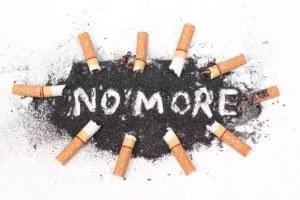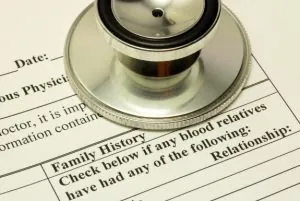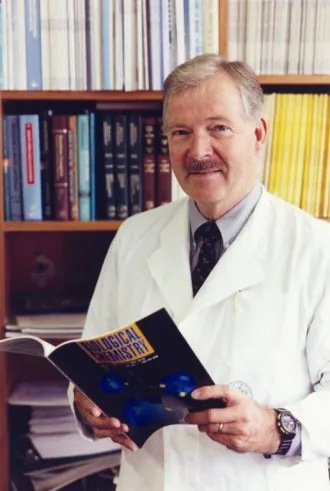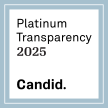8 Proactive Cancer-Preventing Pointers
Over 14 million people worldwide were diagnosed with cancer this past year, according to the World Health Organization. And the numbers are expected to increase by 70% over the next 20 years. [1] With cancer continuing to affect the lives of so many people, it’s important to understand what steps we can take to prevent or reduce cancer risk.
Quick stats:
- Research has shown that at least 1/3 of all cancer cases are preventable. [2]
- Last year, over 1.6 million Americans were diagnosed with cancer – that means more than 500,000 cases could have been avoided. [3]
- Scientists are actively studying different ways to help prevent cancer, including changes in diet and lifestyle, chemoprevention (medicines that treat precancerous conditions or keep cancer from starting) and much more. Read about related work by NFCR-funded scientists Dr. Helmut Sies and Dr. Michael Sporn.
1. Stop smoking

Quitting reduces your risk even if you’ve smoked for years. Talk to your doctor about strategies or free support systems that can help you quit. Also, avoid second-hand smoke whenever possible – it can be just as damaging as personally smoking.
2. Maintain a healthy weight
People who are overweight or obese have a higher risk of many serious health conditions, including cancers.
To control weight gain, eat more fruits, vegetables, lean proteins and whole grains. Maintaining a healthy weight throughout life can lower your risk of breast, uterine, prostate, lung, colon, kidney, pancreatic, esophageal, gallbladder and thyroid cancers. [5]
3. Know your family history

4. Practice safe sunning
Skin cancer rates are on the rise and sunscreen has been proven to reduce the risk of skin cancer. While people with fair skin may be more likely to develop skin cancer due to sun exposure, people with darker skin tones are at risk as well. Sunscreen protects against sunburn as well as harmful ultraviolet rays that can wreak havoc on your skin on cloudy, overcast or winter days when there is no sunshine. It’s good to use sunscreen every day – even duri
Also avoid indoor tanning salons. Research has shown that exposure to UV radiation from indoor tanning devices is associated with an increased risk of melanoma and non-melanoma skin cancer. Even one indoor tanning session can increase users’ risk of developing squamous cell carcinoma by 67% and basal cell carcinoma by 29%. [7]
5. Limit your alcohol intake
Although moderate alcohol use has possible health benefits, it’s also not risk-free. Excessive alcohol use can cause liver damage, heart problems and increases your risk of breast, mouth, throat, esophagus, larynx and liver cancers. [8]
To reduce your lifetime risk of cancer: On average, men should not consume more than two drinks per day and women should not consume more than three drinks per week.
6. Limit red and processed meats
Research shows that people who eat more red meat (beef, pork and lamb) and processed meats (like bacon, sausage, hot dogs and salami) have a higher risk of developing colorectal and prostate cancers. [9] Although there is not scientific consensus, the observed increased risk may be explained by high iron and fat content in red meat and/or the salt and nitrates in processed meat.
Need some red meat alternatives? Try some of our favorite cancer-fighting recipes tonight like Rainbow Salsa (with grilled fish or chicken) and Pumpkin Soup (with a Garlic, Kale and Sesame Topping).
7. Get moving every day

8. Schedule your screenings
Regular cancer screenings help with early detection and prevention. Screening tests include mammograms for breast cancer, colonoscopies for colorectal cancer, pap smears for cervical and uterine cancer, body checks for skin cancer and more. Talk to your doctor to see what screenings are appropriate for you given your family history, age and lifestyle choices. For more information on cancer screenings, please refer to our Cancer Detection Guidelines.
Preventative Cancer Research
The best way to reduce the number of patients dying from cancer is to prevent the disease from developing in the first place. That’s why NFCR-sponsored researchers have been investigating links between nutrition and cancer as well as drug development to prevent cancer for decades.

*Prevention tip: Read how to add selenium to your diet

Sources:
[1] http://www.who.int/mediacentre/factsheets/fs297/en/
[2] http://www.who.int/cancer/prevention/en/
[3] https://www.cancer.gov/about-cancer/causes-prevention/patient-prevention-overview-pdq
[4] https://www.dosomething.org/us/facts/11-facts-about-smoking
[5] https://www.cancer.gov/about-cancer/causes-prevention/genetics/genetic-testing-fact-sheet
[6] https://www.aad.org/media/stats/prevention-and-care
[7] https://www.cancer.gov/about-cancer/causes-prevention/risk/alcohol












